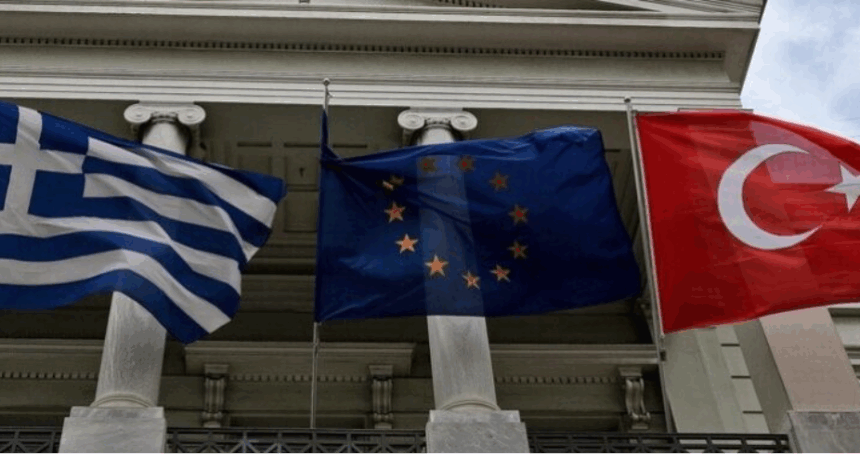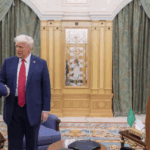In a major step toward building a more unified European defence posture, the European Union has officially launched its €150 billion Security Action for Europe (SAFE) initiative. Approved by EU defence ministers this week, the fund is set to reshape how Europe develops, produces, and procures military equipment—but not without stirring political tensions over who should be allowed to participate.
While SAFE is fundamentally an EU project, its architecture leaves the door ajar for involvement by select third countries, including candidate countries like Turkey. That possibility has reignited longstanding frictions between Ankara and Athens, underscoring how defence integration in Europe is as much about politics as it is about security.
What is SAFE?
SAFE is the largest defence financing instrument the EU has ever created. Structured as a loan-based mechanism, it is designed to help EU member states jointly invest in military capabilities—from ammunition and drones to air defence systems and cybersecurity infrastructure. The initiative responds to growing concerns over European reliance on foreign arms, as well as lessons drawn from the war in Ukraine about the need for faster, more coordinated defence production.
To access SAFE funding, at least 65% of the project value must be generated by companies based in the EU, the European Economic Area (EEA), or Ukraine. The remaining 35% may come from non-EU entities, provided they meet strict security and policy conditions.
While the plan is primarily aimed at EU countries, it also includes a pathway for third-country involvement—specifically those that are official EU candidates or have established Security and Defence Partnerships. That includes Turkey.
Turkey Signals Interest in Joining
Turkish officials have welcomed the SAFE initiative and expressed a desire to be included. Haluk Görgün, President of Turkey’s Presidency of Defence Industries (SSB), said the program offers “a natural space” for collaboration between Turkey, the EU, and NATO.
“Our defence sector has proven its reliability and innovation. Turkey is ready to support the collective security of Europe,” Görgün said in a public statement.
Turkey’s defence industry has grown dramatically over the past two decades, becoming a top 15 global exporter. In 2024, Turkey exported over $7 billion in defence and aerospace equipment, more than half of which went to NATO allies and Ukraine. Turkish companies like Baykar, ASELSAN, and TAI are known for their cutting-edge drone technology, smart munitions, and electronic warfare systems.
Moreover, Turkey is already intertwined with European defence infrastructure. Baykar’s acquisition of Italy’s Piaggio Aerospace and its existing partnerships with Italian firm Leonardo suggest that Turkish companies could play a subcontracting or joint venture role even without direct SAFE membership.
Greek Veto Looms Large
But the enthusiasm in Ankara is being met with caution—and outright opposition—in Athens.
Greek Prime Minister Kyriakos Mitsotakis has publicly rejected the idea of Turkey participating in SAFE, citing both current tensions and historic grievances. At the center of the dispute is Turkey’s 1995 “casus belli”—a formal declaration that it would consider an extension of Greek territorial waters in the Aegean Sea as an act of war.
“Europe cannot build a common defence with threats still on the table,” Mitsotakis told reporters after the SAFE announcement. “The casus belli must be formally withdrawn before any meaningful cooperation can begin.”
Greece also points to what it sees as Turkey’s increasingly authoritarian domestic politics and assertive foreign policy as incompatible with the EU’s foundational principles. Athens is expected to use its veto power to block any bilateral agreement between Turkey and the EU related to SAFE.
Although the SAFE initiative itself was passed using qualified majority voting, any participation agreement with a third country must be approved unanimously—giving Greece, and potentially others, a decisive say.
An Open Question for European Strategy
For Brussels, the SAFE debate encapsulates a deeper strategic dilemma: whether European defence cooperation should be strictly values-based or open to pragmatic alliances with capable but politically complex partners.
Supporters of Turkish inclusion argue that the EU cannot afford to sideline one of NATO’s most militarily capable members at a time when European security is under historic strain. Others counter that diluting political standards in pursuit of expediency could damage EU cohesion in the long run.
Diplomats and defence analysts say the issue is unlikely to be resolved quickly. Some expect Turkey to pursue indirect participation—working through industrial partnerships or joint ventures based in EU countries—rather than seeking formal SAFE membership.
What Comes Next
EU member states have six months to submit their national defence investment plans for SAFE funding. That period is expected to involve further debate over third-country involvement, including potential mechanisms for partial or conditional participation.
Turkey is also preparing to host the NATO Summit in 2026. Officials in Ankara are expected to use the opportunity to highlight the country’s role in Euro-Atlantic security and renew calls for more inclusive defence cooperation with European partners.
Whether the SAFE fund becomes a symbol of European unity or another flashpoint in EU–Turkey relations may depend on the political will to find a workable compromise between strategic necessity and foundational values.
By: Geopolist | Istanbul Center for Geopolitics







